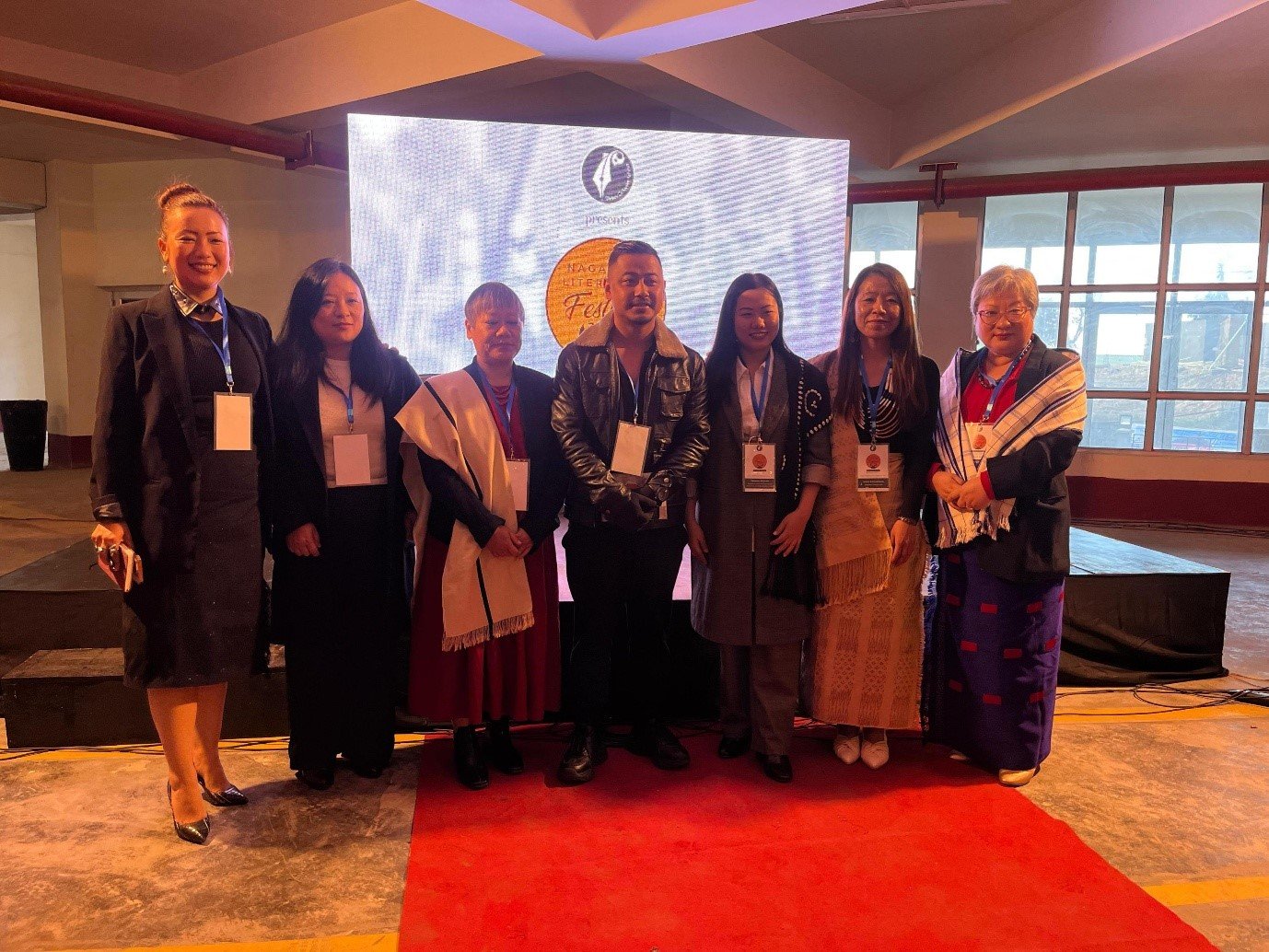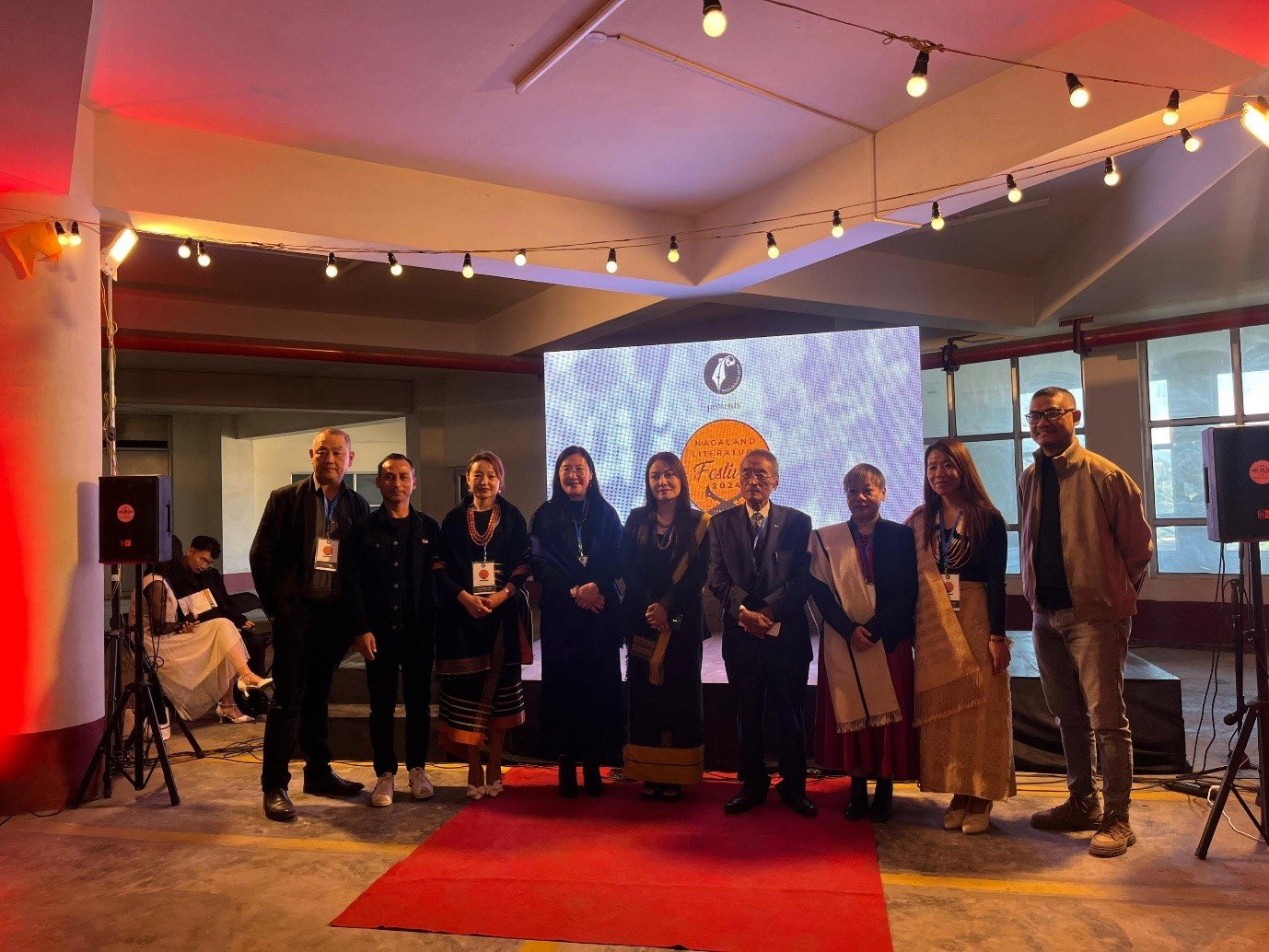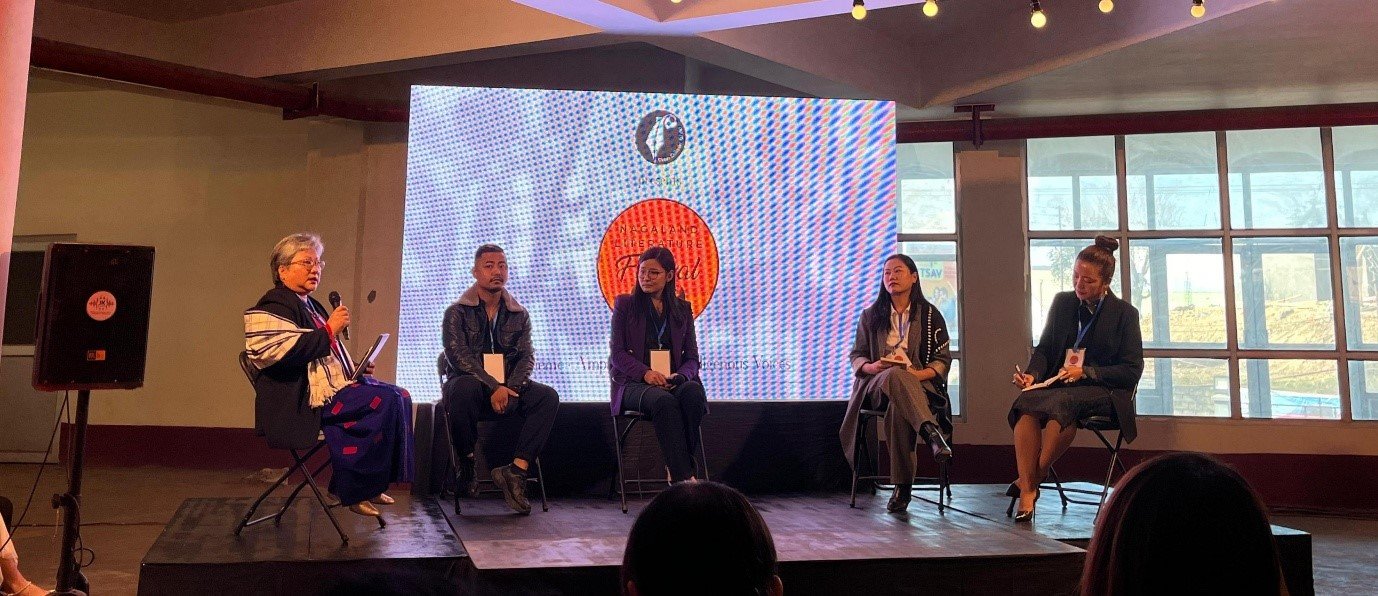The 4th Nagaland Literature festival was held at the Capital Cultural Hall Complex Kohima on November 13 under the theme “Amplifying our indigenous voice”.
Dr.Shürhozelie Liezietsu, former Chief minister of Nagaland and President Ura Academy graced the Festival as the Inaugural Guest. In his speech, Dr. Shürhozelie highlighted that the struggles faced by Nagas and the disadvantages faced in the past with modern education reaching Nagas late.
“However slow the spread of education might be, whatever disadvantages one might have faced in the past, the progress made by the younger Naga generation is really laudable. I sometime wonder how the Naga people made rapid stride in learning to catch up with the modern world but I am proud to see the good progress made by our younger generation particularly in the literary field.,” remarked Dr. Liezietsu.
Delving on the Festival theme “Amplifying Our Indigenous Voices”, he posited that the main and only channel to amplify indigenous voices is through writing. Dr. Liezietsu cited that writing books on prose, poems, narratives, epic, dramatic etc. will amplify these voices.
“Literature is a form of human expression which always reflects the intention of the author. If so, any kind of literature produced by a Naga will certainly reflect the lives of our people in one way or the other which in turn will amplify our voices. Written Naga literature is a fairly new development that has emerged in recent years,” viewed Dr. Liezietsu.
With the early writings and documentation on the Nagas mostly undertaken during British colonial era, he lamented that the indigenous stories were introduced to the world through the lens of others and Inevitably presented an image of how they saw and interpreted Indigenous people.
“And because we were defined by them, the Naga voice was absent in the first writing Naga stories and Certain stereotype have also set in. It is only now we are beginning to document and write our stories. Naga writing and literature are, therefore, at a very crucial and exciting juncture as we are in the process of learning to reclaim our narrative and find out authentic voices. As we learn to tell and write our own stories, we are on a journey of self discovery,” said Dr. Liezietsu.

The significance of the rich oral tradition of Nagas were also emphasized, where the Veteran politician viewed that these sources still form the main repository of our indigenous knowledge and encompasses other forms of storytelling besides the written form. Towards this end, he asserted the importance of the role of local literature committees, acknowledging the role of Writers Collectives and its connection with Ura Academy.
“It is hoped that this year’s theme, “ Amplifying Our Indigenous Voices” could explore ways to promote various Naga voices, and provide a platform to our writers, poets, artists and storytellers to share their works and experiencees. The theme will further explore preservation and promotion of Naga languages and stories, the role of storytelling in Naga culture – personal experiences, challenges faced by our writers and artists, oral stories and legends as inspiration for written works, social commentary through creating storytelling new ways of engaging and promoting our languages and literature, impact of social media and navigating through modern innovations. Based on the various experiences of our storytellers, we hope to have a fruitful outcome in exploring ways to promote and amplify emerging Naga voices, support language preservation and encourage new generations of Naga writer and storytellers,” expressed Dr. Liezietsu.
Download Nagaland Tribune app on Google Play

In the opening remarks, Vishü Rita Krocha, Writers collective stated that this year’s edition marked a new beginning and a new chapter for the Nagaland Literature Festival having moved away from the Hornbill list of events. Krocha provided a brief on the establishment of the Nagaland Literature Festival in the year 2021 inspired by
Speaking from personal experience of working for the promotion of literature for the past many years spanning over a decade, Krocha rued that literature is not in the government’s priority list. However, regardless of literature generally not being considered either by the government or the public at large as an important area for community development, the Writer reiterated that the Writers Collective will endeavour in the best of its ability to promote literature from the state of Nagaland that has always been brimming with stories. “We are important and our indigenous voices will always remain relevant even with the ever evolving society. In our search for self-discovery, our stories are the basis of our foundation, our roots, our identity, our history and our culture. And therefore, it is important that we learn, understand, and embrace our stories before we begin to explore stories from the outside world. Which is also why, we chose “Amplifying Our Indigenous Voices” as the theme for this year’s edition,” stated Krocha.

Special features of the event included: Storytelling- From text to scene featuring Jeo Rutsa in conversation with Sentilong Ozukum; Panel discussion ons “Amplifying our indigenous voices” was held with Moko Koza, Inakali Assumi, Jungmayangla Longkumer and Megosano Sakhrie. And Dr. Theyiesinuo Keditsu as the moderator; and the Indigenous Woman’s Voice: A Perspective was delivered by Abeinuo Jasmine Ashao, SDO Civil, Kohima.
A short note on Beti Bachao Beti Padhao was given by Moasunep K. Jingru,EAC (Dev) Kohima following which a workshop on book writing was lead by Vishü Rita Krocha, Neikehienuo Mepfhü-o and Vizovonuo Elizabeth.
The closing ceremony was graced by Dr.Kevileno, Educator and former HOD, English department Kohima college.

